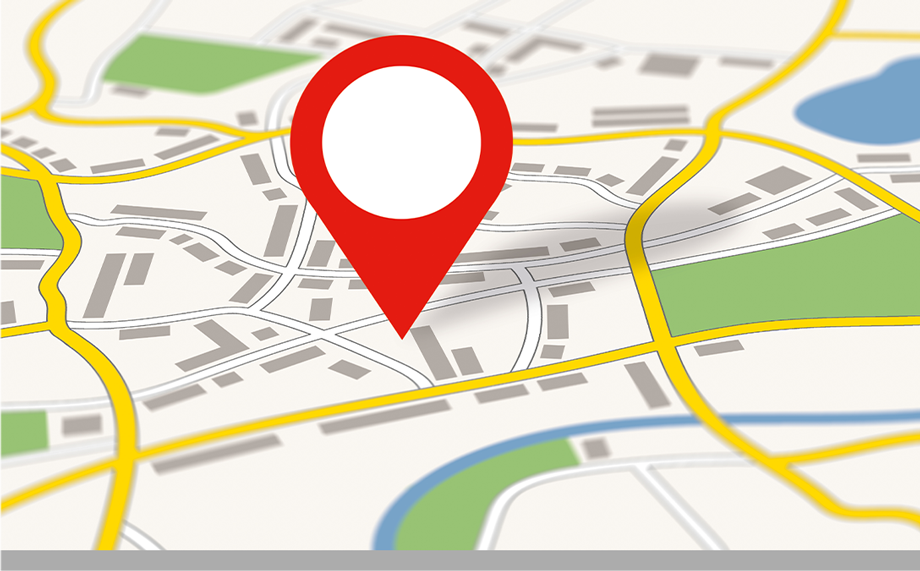Welcome to the Georgia State Profile Page! This page features a sample of survey and research results from a comprehensive review of state and local home modification activities across the country. It has a special focus on the aging population and the efforts of the aging network (State Units on Aging, Area Agencies on Aging, and Native American aging service programs that are funded by the Older Americans Act Title VI) as well as other governmental agencies and programs.
STATE PROFILE: Georgia

Georgia
A State Profile of Home Modification Activities
SPOTLIGHT ON STATE LEVEL HOME MODIFICATION ACTIVITIES
This section shares information that demonstrates the need for home modification in this state and highlights some of the state’s important home modification efforts, policies, and funding sources.
SPOTLIGHT ON LOCAL HOME MODIFICATION EFFORTS
How are agencies across the country responding to their communities’ home modification needs? Read about stand-out home modification efforts of the aging network as well as local agencies in this state.
Check back as new updates will be posted periodically! Have any changes or additions? Please contact homemods@usc.edu
SPOTLIGHT ON STATE LEVEL HOME MODIFICATION ACTIVITIES
Home Modification and Repairs for Older Adults: Challenges and Opportunities for State Units on Aging: This report by the USC Fall Prevention Center of Excellence and ADvancing States reports on a national survey
DEPARTMENT OF HUMAN SERVICES DIVISION OF AGING SERVICES (State Unit on Aging)
State Units on Aging (SUAs) are designated state-level agencies that develop and administer state plans that advocate for and provide assistance, including home modifications or repairs, to older residents, their families, and adults with physical disabilities. SUAs administer funds, including Older Americans Act funds, which may be used to support home modification or repair services through local Area Agencies on Aging and other state and local entities. Program(s) with home modification or repairs include:
Home and Community-Based Services Program/In-Home Services
Program Description: The Home and Community-Based Services Program is administered via the Area Agencies on Aging, and includes a range of solutions to help older Georgians live safely in their homes and communities. The focus is on increasing accessibility, reducing the risk of injury, and improving older adults’ ability to stay at home. The In-Home Services component may include home modification and repairs and certain assistive devices that support the safety and well-being of adults in their homes.
Population Served: Individuals age 60 and older and their caregivers.
Independent Care Waiver Program (ICWP)
Program Description: The Independent Care Waiver Program provides supportive services for Medicaid-eligible adults with physical disabilities to live in their own homes or in the community instead of a hospital or nursing home. Services may include environmental accessibility adaptations.
Population Served: Medicaid-eligible individuals with severe physical disabilities who are between the ages of 21 and 64 and who meet functional criteria.
GEORGIA DEPARTMENT OF COMMUNITY AFFAIRS
Home Access Program
Program Description: The Home Access Program supports the ability of persons with disabilities to reside in the home with appropriate home modifications and helps prevent unnecessary entry into nursing homes. The program allows grant awards of up to $10,000 to improve the accessibility of an owner-occupied home in which an individual with a disability resides. Eligible activities through the program include, but are not limited to: bathroom retrofitting (e.g., roll-in showers), construction of wheelchair ramps, lowering of cabinets and counters, widening of doorways, and installation of visual aids and audible alarms.
Population Served: Georgia residents with disabilities.
Disabled Person Home Purchase or Retrofit Credit 201
Program Description: The Georgia Disabled Person Home Purchase or Retrofit Credit provides a person with a disability with a credit equal to the lesser of $500 per residence or the taxpayer’s income tax liability for the purchase of a new single-family home that contains accessibility features from a qualified list (one no-step entrance, interior passage doors of at least a 32-inch wide opening, reinforcements in bathroom walls for grab bars, and light switches/outlets in accessible locations). It also provides a credit equal to the lesser of the cost or $125 to retrofit an existing single-family home with one or more of these features.
Population Served: The person must be permanently disabled and have been issued a permanent parking permit by the Department of Revenue or have been issued a special permanent parking permit by the Department of Revenue. This credit can be carried forward 3 years.
GEORGIA STATE ASSISTIVE TECHNOLOGY PROGRAM
Tools for Life, Georgia’s Assistive Technology Act Program
This program is dedicated to increasing access to and acquisition of assistive technology devices and services for Georgians of all ages and disabilities so they can live, learn, work and play independently and with greater freedom in communities of their choice.
The State Assistive Technology Grant Program, funded under the Assistive Technology Act of 2004, supports comprehensive, statewide programs in each state that improve the provision of assistive technology (often home modification-related) to individuals with disabilities of all ages.
GEORGIA STATE FALL PREVENTION COALITION
Georgia Fall Prevention Coalition
Elizabeth.head@dph.ga.gov
gjohnson@dhr.state.ga.us
For an up to date list of all state fall prevention coalitions, visit: https://www.ncoa.org/resources/list-of-state-falls-prevention-coalitions/
SPOTLIGHT ON LOCAL HOME MODIFICATION EFFORTS
1. To locate the Area Agency on Aging in your state, please contact Eldercare Locator at https://eldercare.acl.gov/Public/Index.aspx
2. Data Brief: Building Community Capacity to Serve Older Adults: The Role of Area Agencies on Aging in Home Modifications and Repairs
This Data Brief highlights key findings from the 2019 National Survey of Area Agencies on Aging on how Area Agencies on Aging are providing and funding home modification and repair activities. It was developed by the USC Fall Prevention Center of Excellence in partnership with the National Association of Area Agencies on Aging as part of the Administration for Community Living project, “Promoting Aging in Place by Enhancing Access to Home Modifications.”
3. Featured Efforts:
Ability Solutions Assistive Technology Lab
Coastal Area Agency on Aging
Darien, Georgia
Coastal Area Agency on Aging, in cooperation with Georgia Tech, houses a technology lab set up like a studio apartment giving individuals the opportunity to actually try out items designed to make everyday life more manageable. Items are designed to assist people with mobility issues, dementia care, vision loss, communication problems, and hearing loss. Examples of ways to use the devices at home and home modification suggestions are available.
Heritage Owner-Occupied Rehab Program (OOR)
Invest Atlanta: Economic Development Authority for City of Atlanta
Atlanta, Georgia
This affordable housing initiative helps low-income residents of Atlanta remain in their homes by offering forgivable loans to make critical health and safety repairs. Priority is given to residents who have been in their home over 15 years; individuals over 55 years of age; heads of households with disabilities; and military veterans.
Wheelchair Ramp Construction Program
Southern Georgia Regional Commission’s Area Agency on Aging
Waycross, Georgia
This program of the Southern Georgia Regional Commission Area Agency on Aging was established in 2015 and adds safe and attractive wheelchair ramps to the homes of frail older individuals 60 years and older. It is funded through the Georgia In-Home Service Program as well as private pay and fundraising.
This page is brought to you by the project, “Promoting Aging in Place by Enhancing Access to Home Modifications,” supported, in part, by grant number 90PPHM0001 from the U.S. Administration for Community Living, Department of Health and Human Services, Washington, D.C. 20201. Grantees undertaking projects with government sponsorship are encouraged to express freely their findings and conclusions. Points of view or opinions do not, therefore, necessarily represent official ACL policy.


